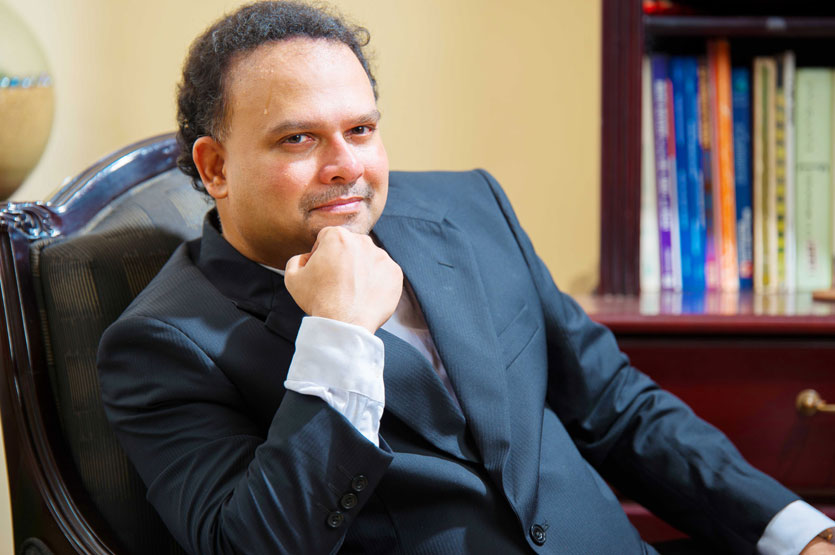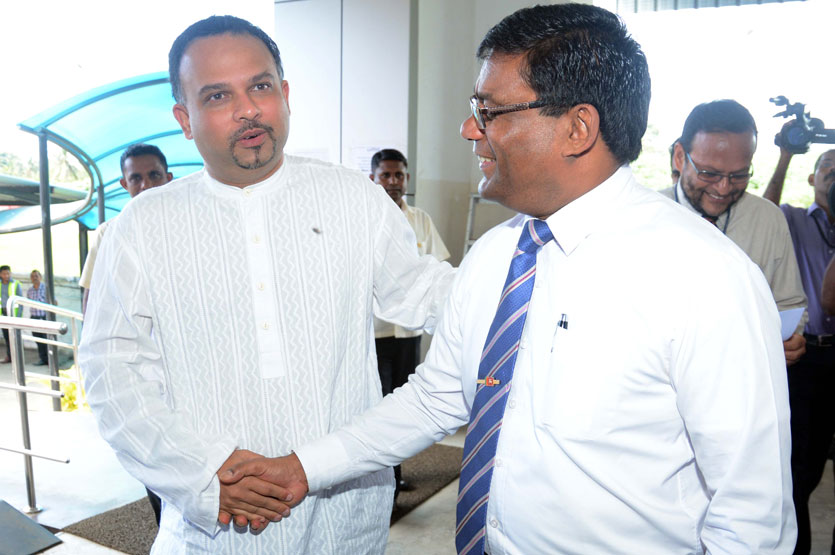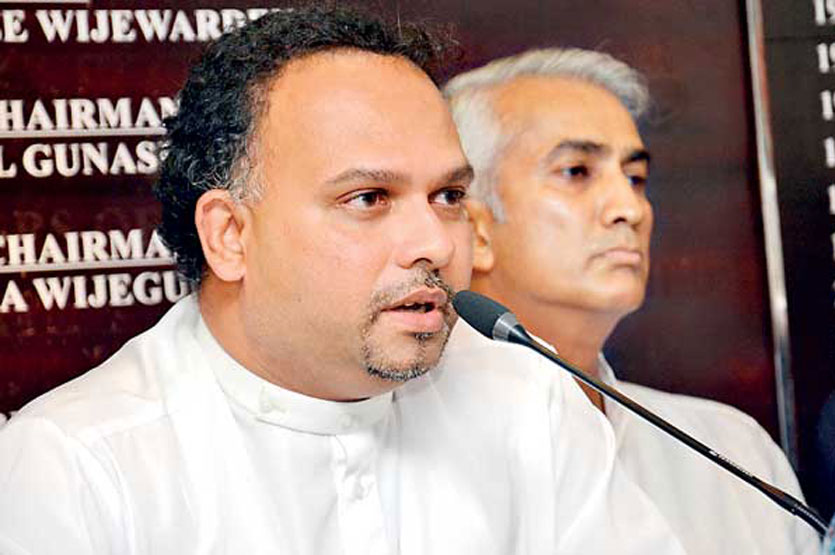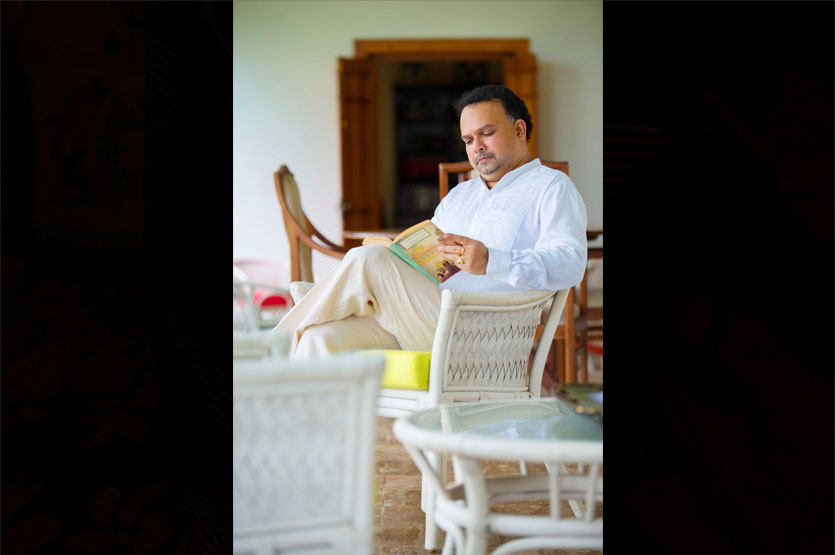Oct 11 2016.
views 1177Ask the Minister: Matters of Public Interest
A Chat With Navin Dissanayake, Minister of Plantation Industries
Some of our readers will be very interested in getting to know the progress of the present government and the future plans of the Ministers. With the endeavour of creating awareness in this regard, Daily Mirror Life met up with some Ministers and asked them a few questions. Their answers will be carried in this weekly column. This week, we speak to Navin Dissanayake, Minister of Plantation Industries.

Can you tell me in brief, the function of your Ministry?
My Ministry acts as a regulator, facilitator and implementer of government policies concerning tea, rubber and coconut.
Other than tea, rubber and coconut, what else is under your purview?
At the moment the Sugar Research Institute is also under my purview.
Can you elaborate on the recent statement made by you that the four sugar factories and the Sugar Cane Research centre should be handed over to one Ministry?
The subject of sugar was under this Ministry earlier. Now it has been divided into various Ministries but I have stated my claim to get the sugar also under my Ministry. As the Sugar Research Institute is under me, I feel that the cultivation and propagation of sugar can happen more methodically under this Ministry.

The plantation sector seems to be facing some serious issues these days. Can you explain?
At the moment we are facing two major issues. One is the wage issue concerning the Regional Plantation Companies and the Trade Unions. Minister of Labour, John Seneviratne is directly handling this but I am also playing a key role in it, and we are trying our best to work out a suitable formula acceptable to both sides. We want the productivity model coming in at this point of time because the cost of production is so high in our estates and we cannot compete with countries like Kenya or India if our costs are high and the main component of that cost is the wage aspect.
The second issue I’m confronted with is the prices of tea. Sri Lankan prices have been coming down. After I took over it has stabilised considerably.
What measures are you taking to improve the tea sector?
After I get over these two crises’ I want to have a long term strategy to develop the Tea sector in a more sustainable manner and perhaps make it more resilient to global commodity shocks.
I believe in having an ethical and sustainable tea industry where there is less dilution of Ceylon Tea and less mixing of pure tea making it impure. I have given strict instructions to the Tea Board that they should be very hard on people who mix tea.
Then, I am also aggressively targeting new markets like China, Iran, USA and Turkey. We believe that we have come down on our traditional markets shares like in Russia and the Middle East. Middle East, because of the Syrian crises. But in about two years I can accomplish these things.

How can technology be used to replace traditional methods and enhance the industry?
Now we see technology like drones being used for fertilizing. We see traditional planting replaced by modern methods. Instead of hand plucking, plucking machines are used. But if you use plucking machines the finer aspects of the tea leaf is destroyed so these matters need to be considered.
What about research?
Research has been neglected for a long time by successive governments. In other countries governments spend about 2% of the GDP on research whereas Sri Lanka spends less than 1%. The state doesn’t recognise the need for research and it is underfunded, but we have excellent scientist working on various projects.
What is the progress so far in the process of planting in non-traditional areas?
With rubber we have had success in Moneragala. For coconut we are going for the North. I just declared the second coconut triangle in the North. Coconut has a lot of potential. Virgin coconut oil, coconut water etc., are very popular in the West. 80% of our coconuts are consumed locally. If we plan it out properly, the future for exporting coconuts can be very lucrative.

Although Sri Lanka was a large rubber producing country in the 60s and the 70s, percentages have significantly come down now. Your comments?
Yes that’s right it has come down, but we are a value adding country for rubber products. Sri Lanka is becoming a rubber hub in Asia. We want to make sure that the people who invest in the rubber hub will have easy access to raw materials and that the cost of production is relatively lower than other countries.
Companies come here and manufacture different rubber products and then they export it to other countries. We want to strengthen that process as well. Rubber and gasoline are related products. When the price of gasoline goes up, so does the rubber. Hopefully by next year the prices should pick up.
Many people are of the view that the progress of this government is rather slow. Why do you think that is?
I also feel frustrated at times, because things are not happening as fast as they should. That is because still there is baggage from the previous regime blocking the process. The government service is entrenched with people who believe in a certain vision that we don’t believe in. They are placed in different institutions and they are like a corrosive virus. They don’t work and they don’t allow anybody who can work also to work. It’s difficult to remove them also. That is what is slowing down the process.
Did you know?
- He was educated at Royal College Colombo and S. Thomas Preparatory School.
- He is an Attorney-at-law and Barrister. He has graduated from the University of Sussex in Law and holds a Master's Degree in Finance and Financial Law from University of London.
- He is a son of late Gamini Dissanayake a former Presidential candidate and grandson of Andrew Dissanayake who served as an MP for the Nuwara Eliya.
- His brother Mayantha Dissanayake is a MP for UNP from the Kandy District.
- He is married to Dr. Lanka Jayasuriya, daughter of Karu Jayasuriya, and they have two daughters Samdhee and Mahita.
0 Comments